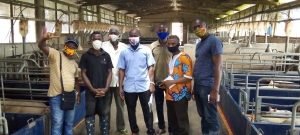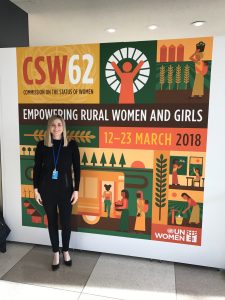Supported in part by ELCA World Hunger, the Asian Rural Institute (ARI) in Japan is a nine-month service leadership training program that draws people from around the world, allowing them to live and work together as they learn agricultural skills they can take back to their home communities. ARI also invites guest lecturers from Japan and abroad to teach sustainable development, organic farming and more.
Through this model, ARI empowers leaders from around the world to build community, embrace diversity, value rural life, see the dignity of labor, promote food sovereignty and live in harmony with nature. Graduates return to their home countries equipped to work in sustainable development, build relationships with local leaders and transform their communities. Participants also receive ongoing support from ARI in identifying funding and leadership opportunities.
As the impact of COVID-19 began to ripple around the world this spring, countries closed their borders and airports and flights were changed or canceled. Out of 26 students who’d planned to participate in ARI this year, only seven arrived in Japan; the others encountered travel restrictions and other challenges.
Four ARI participants from Sierra Leone were at the closest Japanese consulate — in Accra, Ghana — applying for visas to enter Japan when Sierra Leone closed its borders and the government in Ghana ordered a nationwide lockdown. The participants obtained their Japanese visas, but the airports and borders were closed, so they couldn’t leave the country.
This is when ARI reached out to its graduates in Ghana for help. John Yeboah, a 2018 graduate, answered the call, providing safety, food and lodging for the travelers. He escorted them from Accra to Kumasi by bus and took care of their needs while they awaited travel news.
Modeling what he had experienced during his training in Japan, John even worked with ARI to start the participants’ training right where they were. He led them in morning exercise, time-management techniques, leadership training and coaching, and discussion and reflection sessions.

John Yeboah (second from left), a graduate of the Asian Rural Institute in Japan, is pictured with the four students from Sierra Leone and two local farmers at a pig farm in Kumasi, Ghana.
For the first few weeks, COVID-19 restrictions prevented Ghanaians from traveling to their fields. Eventually, restrictions were loosened, allowing the group to begin the agricultural portion of their unexpected training program. Following the ARI curriculum, they practiced growing crops such as cabbage, beets, carrots, chili peppers, okra, lettuce, spring onion, mint, spinach and cucumber on John’s organic farm
ARI staff have called John’s work a testament to the impact of the ARI training program on a community. With his display of servant leadership and his ability to adjust in a time of crisis, John turned a challenging and stressful situation into an unexpected time of learning and bonding for the Sierra Leone participants. Despite the difficult year, John and people like him around the world are demonstrating adaptability, ingenuity and Christ’s love for the neighbor.
Because of the work of God bringing people together across borders and through challenges, a farmer from Ghana guided students from Sierra Leone in a training program established by an institute in Japan, with funding from congregations and individuals in the US. Truly, John’s story, made possible in part because of gifts to ELCA World Hunger, reflects ARI’s motto: “That they may live together,” no matter the distances that keep us apart.
This story was originally published in the Winter 2020 edition of Boundless. View the full publication here.

